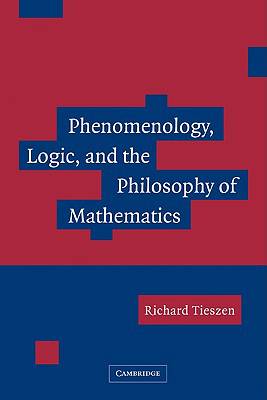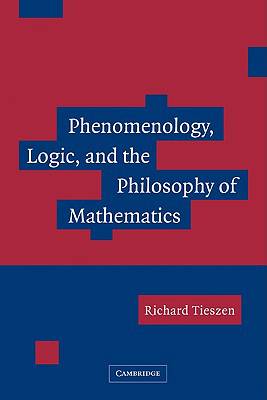
- Afhalen na 1 uur in een winkel met voorraad
- Gratis thuislevering in België vanaf € 30
- Ruim aanbod met 7 miljoen producten
- Afhalen na 1 uur in een winkel met voorraad
- Gratis thuislevering in België vanaf € 30
- Ruim aanbod met 7 miljoen producten
Zoeken
Phenomenology, Logic, and the Philosophy of Mathematics
Richard Tieszen, Tieszen Richard
Paperback | Engels
€ 60,95
+ 121 punten
Uitvoering
Omschrijving
Offering a collection of fifteen essays that deal with issues at the intersection of phenomenology, logic, and the philosophy of mathematics, this 2005 book is divided into three parts. Part I contains a general essay on Husserl's conception of science and logic, an essay of mathematics and transcendental phenomenology, and an essay on phenomenology and modern pure geometry. Part II is focused on Kurt Godel's interest in phenomenology. It explores Godel's ideas and also some work of Quine, Penelope Maddy and Roger Penrose. Part III deals with elementary, constructive areas of mathematics. These are areas of mathematics that are closer to their origins in simple cognitive activities and in everyday experience. This part of the book contains essays on intuitionism, Hermann Weyl, the notion of constructive proof, Poincaré and Frege.
Specificaties
Betrokkenen
- Auteur(s):
- Uitgeverij:
Inhoud
- Aantal bladzijden:
- 368
- Taal:
- Engels
Eigenschappen
- Productcode (EAN):
- 9780521119986
- Verschijningsdatum:
- 24/09/2009
- Uitvoering:
- Paperback
- Formaat:
- Trade paperback (VS)
- Afmetingen:
- 152 mm x 229 mm
- Gewicht:
- 539 g

Alleen bij Standaard Boekhandel
+ 121 punten op je klantenkaart van Standaard Boekhandel
Beoordelingen
We publiceren alleen reviews die voldoen aan de voorwaarden voor reviews. Bekijk onze voorwaarden voor reviews.











